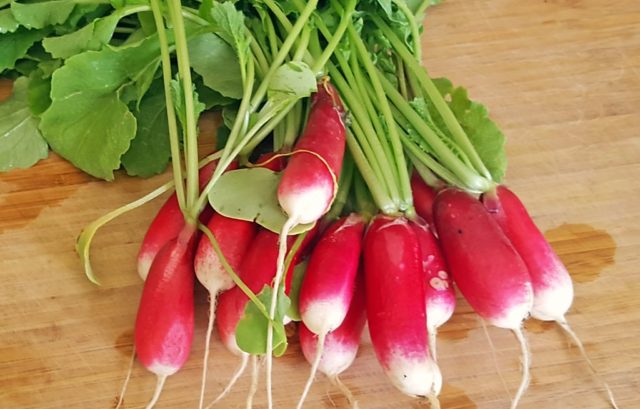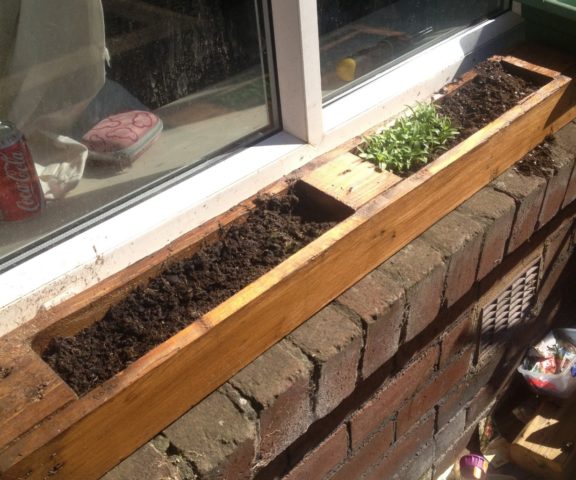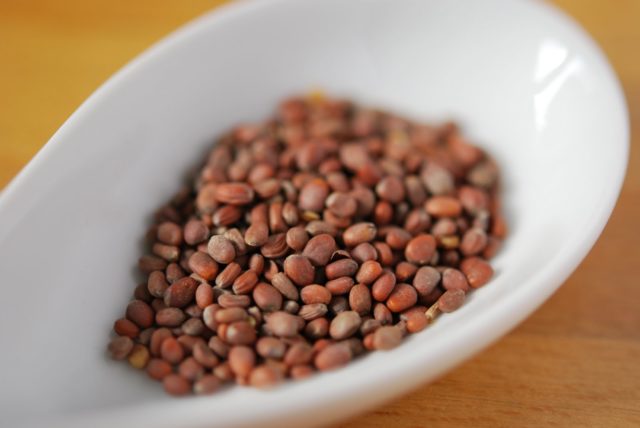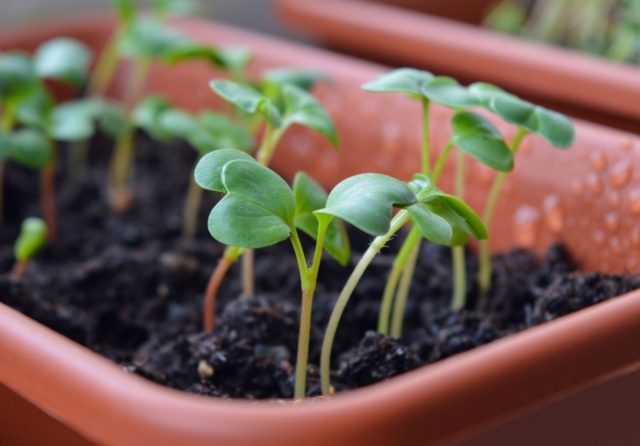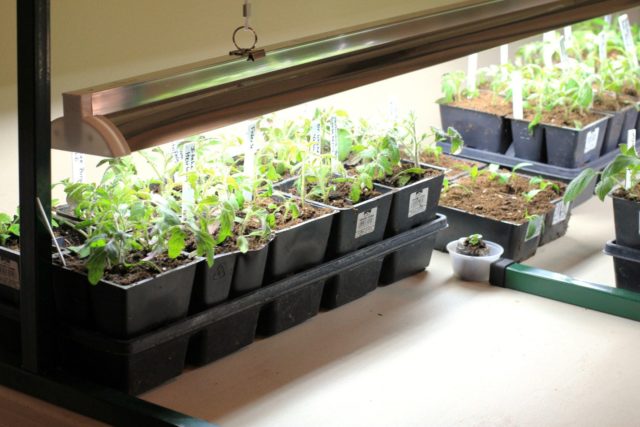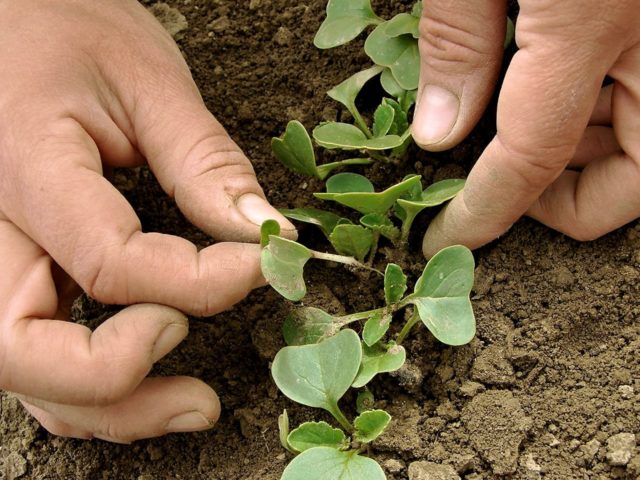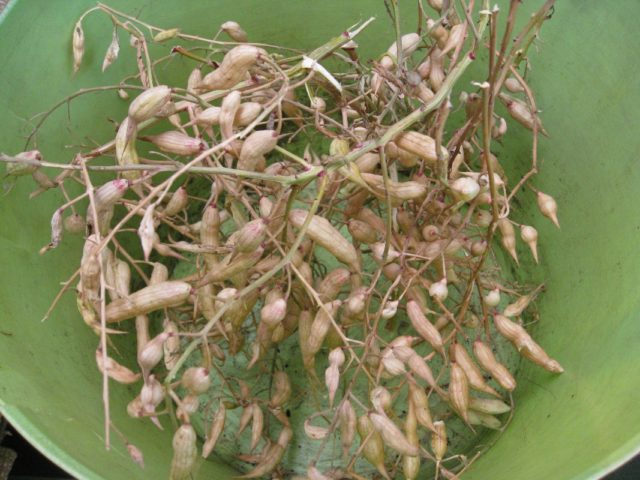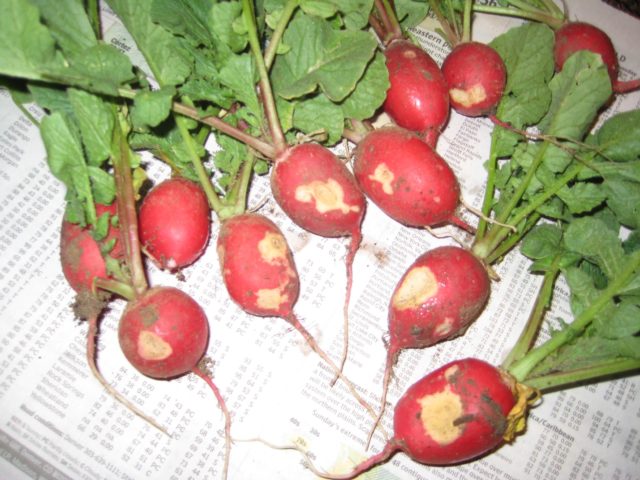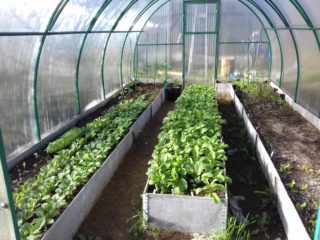Content
Cultivating radishes on a windowsill in winter is possible for beginners if you put in the effort. The plant is unpretentious, grows quickly, and can be harvested almost all year round.
Is it possible to grow radishes on a windowsill or balcony in winter?
The culture is unpretentious in care, therefore, with proper organization, it is possible to obtain a fresh harvest of radishes in winter.
The maximum amount of vegetables grown in winter can be obtained by planting it in a heated greenhouse. In the absence of conditions, radishes successfully grow at home: on a windowsill or balcony.
Conditions for growing vegetables in winter:
- ambient temperature is 10-16 °C, but radishes tolerate frosts down to - 5 °C;
- air humidity up to 65%;
- providing artificial or natural lighting for several hours a day.
The general principles of caring for radishes grown in winter are watering, loosening the soil, and feeding with nutrients in case of insufficient growth.
Is it possible to grow radishes on a windowsill in spring?
If there are no conditions for cultivating vegetables in the garden, it is possible to obtain a harvest at home. You can plant any radish on a windowsill, but there are varieties that give the maximum amount of yield.
Radish varieties for growing on the balcony or at home
The basic requirements for a cultivated plant at home are early ripening, high yield, and resistance to adverse conditions.
To grow radishes at home on a windowsill, the following varieties are used:
- Champion: the species is early ripening, has good taste, and retains the elasticity of the pulp for a long time. The fruits are round, slightly elongated, weighing 20 g. When planting the variety in winter, it is recommended to use loose and fertile soils. Seeds germinate at a temperature of 16-18 °C.
- French breakfast: the period from planting to harvest is 21-25 days. Winter-grown fruits are characterized by a cylindrical shape, pink skin and white, juicy pulp. The weight of one radish reaches 15-20 g. The optimal time for sowing is mid-April and August;
- Radish 16 days: fruits are round, red in color, with juicy pulp. They are not prone to bolting and cracking.To obtain a summer harvest, sowing is done in April, and autumn-winter root crops can be harvested if radishes are planted in July. The variety is ultra-early ripening: the period from sowing to harvesting vegetables is 16 days.
It is possible to grow radishes at home in winter from varieties such as Zarya, Rudolf, Gusar or Zhara.
How to grow radishes on a windowsill in an apartment
One of the main requirements is the presence of a heated room. Radishes are grown at home in winter on any convenient surface that receives sunlight: a balcony, windowsill or table.
Most often, glazed loggias are used for cultivating vegetables. The best option is to locate the balcony on the south side, where there is enough light. Radishes, which are grown in winter in the northern part of the house, ripen smaller and get sick more often.
The advantages of growing radishes on a balcony windowsill in winter: access to fresh air for the seedlings, the availability of the necessary space for work, the possibility of increasing the ambient temperature due to the heating system.
Recommended timing
In its natural environment, the crop grows well from the second half of February to May. To grow radishes from seeds on a windowsill in winter, it is recommended to give preference to early or ultra-early varieties. To get a harvest, you can plant them in the second half of January on a windowsill on the south side. It is allowed to grow the plant on western and eastern windows from the second half of February.
If it is necessary to obtain a year-round harvest, sowing in winter can be done every two weeks. If all necessary conditions are provided, growing root crops is not difficult: they ripen evenly, in accordance with the timing.
Selection of containers and soil preparation
Any container can be used as containers for seedlings for growing plants in winter. The best option is wooden boxes with pallets, 15 cm high and a width equal to the width of the window sill.
Plastic containers with ventilation holes are convenient to use and widely sold. The size of one cell must be at least 5*5 cm.
Radishes are grown at home on the windowsill in winter in egg cells, plastic glasses and even plates. It is important to provide drainage holes and construct trays.
The selected container for growing the plant must be rinsed well with soda and dried, then filled 2/3 with soil. Radishes prefer fertile soil, so it is recommended to purchase in stores a soil mixture intended for growing cucumbers and tomatoes.
Soil manufacturing options:
- In proportions 2:2:2:1, mix garden and forest soils and sand. To achieve homogeneity, the soil mixture is mixed and sieved.
- To 1 bucket of soil from the garden add 1 cup of ash and half of crushed eggshells.
- It is necessary to combine soil and peat in equal quantities.
Self-made soil mixture for growing in winter is treated against insects and pests: spilled with a solution of potassium permanganate or steamed.
When replanting seeds in the same containers, the soil must first be fertilized or the soil in the boxes must be changed.
How to germinate radish seeds at home
Getting a good harvest in winter is possible both from purchased seed and from self-collected seed. To grow radishes at home on a windowsill, you need to use fresh seeds for sowing. They are characterized by brown color and integrity. To test for germination, they are placed in a container of water. When placed in liquid, bad seed will settle to the bottom, while good seed will float to the surface.
Before sowing, the seeds are treated with a solution of potassium permanganate, and damaged samples are removed.
How to plant radishes at home on the windowsill
After preparing the container, soil and seeds, the planting procedure begins: the container is filled with soil, which is moistened with water. Using a diving stick or other available means, you need to make holes at a distance of 5*5 cm and a depth of 1.5-2 cm.
One seed is placed in each of them with tweezers and then moistened with a spray bottle to compact the soil.
At the end of the procedure, cover the container with glass or film and transfer it to the windowsill until shoots appear.
It is necessary to remove the cover from the container 6-8 days after planting, then move the container with seedlings to a cooler place with a temperature of 8 °C for 3-4 days. This procedure allows the plant to become more resistant to adverse external factors. Upon completion of hardening, the container is returned to its original place.
As an alternative planting method, you can grow radishes at home using egg trays:
- a hole is cut in each compartment, then the cassette is placed in a balcony box previously filled with earth;
- the soil is moistened, and then one seed is placed in each cell and lightly sprinkled with earth;
- At the end of the procedure, it is recommended to cover the box with cling film.
How to grow radishes on a windowsill
Step-by-step cultivation of radishes on the balcony consists of following the rules of agricultural technology: timely watering, loosening, fertilizing and creating conditions.
Creating an optimal microclimate
Temperature conditions are very important for successfully growing radishes in winter. Room temperature is not suitable for the crop: the plant stretches and bends, root crops that are cultivated in winter ripen flabby and have low taste.
Placing boxes of radishes next to radiators is impractical: central heating radiators emit not only heat, but also dry air, which interferes with the normal growth of seedlings.
The optimal conditions for germination are + 1-2 °C, but the plant is most comfortable forming root crops at an ambient temperature of + 16-18 °C. During the period of seedling growth, it is recommended to warm the air in the room to + 6-8 °C.
Natural lighting of radishes when growing in winter is not enough, so the deficiency of sunlight is compensated for artificially. For this purpose, fluorescent lamps are used, which are placed near the boxes with plantings.
It is recommended to periodically rotate the boxes so that the seedlings are evenly illuminated and develop.
How many times to water radishes at home
It is recommended to moisten the soil regularly as needed. As it dries, water is sprayed over the surface of the soil using a spray bottle, preventing it from getting on the leaf blades. Excessive moisture leads to rotting of the roots, so the next day after the procedure it is recommended to loosen the soil and hill up the radishes.
The crop does not require additional fertilizing, which allows you to obtain environmentally friendly products. If desired, you can periodically add compost mixed with ash to the soil.
Thinning
When growing a crop in winter in a common box, it must be thinned out. The procedure must be carried out when the plant has 2-3 leaves. Weak seedlings are removed, leaving only strong specimens. There should be at least 1.5 cm between plants.
Harvesting
Ripe root vegetables are suitable for consumption. It is important not to overexpose them in the ground so that they do not crack and lose their taste. It is possible to carry out selective harvesting when growing radishes in winter, but the procedure must be done carefully so as not to damage nearby plants.
After removing the root crop from the ground, the tops are cut off, and the radish itself is washed, then used for its intended purpose. Long-term storage of the harvested crop is impossible.
How to get radish seeds at home
When growing root crops in winter, you can get not only a harvest, but also seeds. Self-collection of seed allows you to be confident in your variety.
The nuances of obtaining radish seeds:
- the plant has a cross-pollination method, so the flowering bush is placed away from other varieties;
- It is impossible to obtain good seeds when trying to collect them from hybrid representatives of radishes (the purity of the species is not preserved when trying to grow again).
Self-collection of seed is a guarantee of its germination the next time it is planted. The success of the event depends on compliance with the procedure algorithm.
Initially, you should decide on the collection method (transfer or non-transfer). The second involves continuing to grow the plant in winter after the end of the harvest season.
When using the transplanting method, the largest root crops are selected. The tops must be trimmed and the roots must also be shortened to 3-4 cm. After this, the radishes are replanted and grown in a separate container, ensuring good watering.
When determining the required number of queen cells, it is important to consider that you can actually get up to 15 g of seeds from one plant. About half a glass of seed is obtained if you plant 10-15 fruits. This amount is enough to provide a family with radishes for the whole year.
When planting root crops from seeds, they are grown in such a way that a distance of 40 cm is maintained between them: as the plant grows, the bush grows.
Caring for radishes grown for seeds involves timely watering and loosening. 2 weeks after planting, the crop is fed with organic fertilizers.
As the queen cells grow, arrows form on them, and then flowers and beans with seeds appear.
The seed is ready for harvest when the pods turn yellow. After this, the bushes are completely cut off and left hanging in a ventilated room until the seeds are completely dry. The duration of the process is 2-3 weeks.
The dried pods are removed and the beans are extracted from them and rubbed with your hands.The resulting mixture is poured with water. Viable seeds will settle to the bottom; all other debris must be removed. The collected material is dried naturally and packaged in cardboard boxes or canvas bags.
Pests and diseases
Growing radishes in winter helps prevent the attack of many pests. Among the diseases that can affect the plant are clubroot, bacteriosis or blackleg.
The development of diseases is one of the reasons why the process of growing radishes becomes difficult. Clubroot is a fungal disease. It manifests itself during the process of growing the root crop as spindle-shaped or spherical growths on it. At the initial stages they are difficult to distinguish, but as they develop they change color from pink to brown, which indicates the beginning of the decay process.
A symptom of bacteriosis is blackening of the veins on the leaf blades, which leads to their yellowing and death. The leaves become deformed and change color, turning black at the base with a black stem in radishes.
As a preventative measure, it is enough to treat the soil in containers with fungicides or a solution of potassium permanganate before starting to grow the crop.
Conclusion
For beginners, trying to grow radishes on a windowsill in winter is not only one way to try your hand at gardening, but also to provide your family with fresh herbs. The culture is rich in vitamins, easy to care for, and can be grown all year round.

